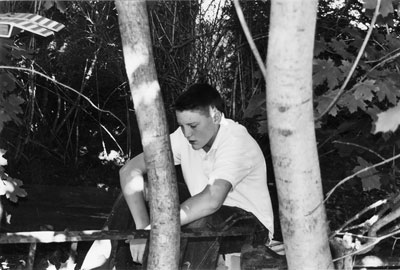All Nonfiction
- Bullying
- Books
- Academic
- Author Interviews
- Celebrity interviews
- College Articles
- College Essays
- Educator of the Year
- Heroes
- Interviews
- Memoir
- Personal Experience
- Sports
- Travel & Culture
All Opinions
- Bullying
- Current Events / Politics
- Discrimination
- Drugs / Alcohol / Smoking
- Entertainment / Celebrities
- Environment
- Love / Relationships
- Movies / Music / TV
- Pop Culture / Trends
- School / College
- Social Issues / Civics
- Spirituality / Religion
- Sports / Hobbies
All Hot Topics
- Bullying
- Community Service
- Environment
- Health
- Letters to the Editor
- Pride & Prejudice
- What Matters
- Back
Summer Guide
- Program Links
- Program Reviews
- Back
College Guide
- College Links
- College Reviews
- College Essays
- College Articles
- Back
Mom Likes Me More
Are you first-born or an only child? Then you are probably a natural born leader, a perfectionist, a type-A personality. You probably get all the attention from your parents and your friends. Are you the middle child? Then you probably notice your older sibling getting all the attention. You most likely won’t catch up to them because whenever you do something good people always say, “Oh, that’s only ______'s sister/brother.” Are you the youngest? You might get all the attention as the “baby”, and not because of your personal achievements. Yes, its hard to live up to your older brother or sister and follow in their footsteps, but it makes it even harder when no one even acknowledges you because your sibling steals your spotlight.
Parent favoritism is a subject discussed among many psychologists. Do parents favor the first or last children? Do unfavored children react aggressively to their “more important” sibling? As for me, I was the first child in my family and I lived up to all of the stereotypes. I paid attention to minuscule details, got straight A’s in school, and played all sports imaginable. I also had more responsibility. I had to babysit when my parents were at work, feed the kids, and make sure they cleaned their rooms. I got my share of attention along with my other brother and sisters. My parents didn’t like one child over another. We all got treated the same.
Unfortunately, not all parents feel the same way. Parent favoritism is apparent in ? to ? of all American families. The type of favoritism varies from birth order, to gender, to biological, and even the child’s personality. Of course, parental stress plays a part in that as well. If the parents are getting a divorce, moving, or getting over a death, they might not act the way they usually do. Sometimes one parent favors one child, while the other parent dotes on another. Parent-child relationships usually progress to adulthood, too. Parents care more for the child closest to them, or the one who provides emotional or financial support. Favoritism can not be excused. It is basically a parent raising a child that will be able to help them in their old age.
In the book Tangerine, by Edward Bloor, Paul Fisher’s older brother Erik is getting all sorts of attention showered on him by friends and his father because he is a star football player. Paul’s mother usually is the only one who notices Paul, even when he wins the championship for his soccer team. Paul is already scared of his older brother because of what he sees, but when he finds out his brother caused his legal blindness by spray painting his eyes and his parents never told him, he is beyond fright. Paul despises Erik because beneath that perfect football player is a monster that their parents created by never correcting his rogue behavior. Their eyes are glazed over, and only Paul can see who Erik really is.
There are many contradictions on the subject of parent-favoritism, but what really matters is the child’s welfare. According to psychological studies, child welfare is the highest when there is no favorites whatsoever, even more then the well-being of the favorite child. Some favoritism is needed, such as with newborn, sick, injured, or mentally disabled children. However, sometimes it goes too far. There is no exact amount of adoration that is too much or too little, but parents have to keep it balanced. Make each child feel special and different, but make sure you are treating them all the same.

Similar Articles
JOIN THE DISCUSSION
This article has 0 comments.
